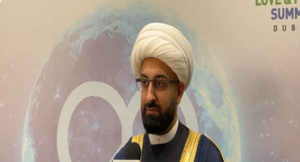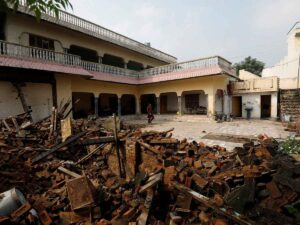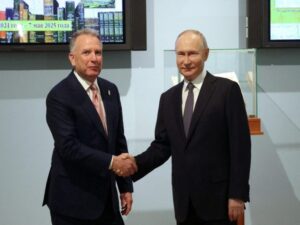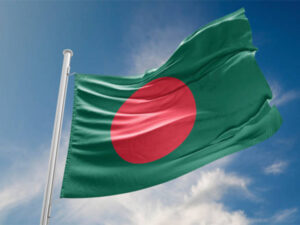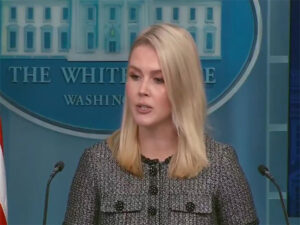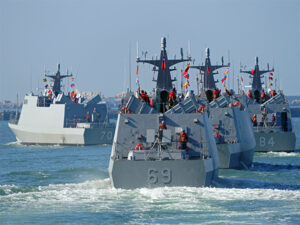Instead of fixing economy Pak politicians embroiled in a tug-of-war: report
Islamabad [Pakistan], February 4 (ANI): Pakistan’s economy is facing an existential threat, but instead of paying attention to tackling the crisis, the Islamic Republic’s politicians are embroiled in a tug-of-war over who would govern the country, reported DW news.
Pakistan now faces nationwide electricity cuts, a severe shortage of gas and record-high inflation. This makes many necessary food items away from the general public and the political class of the country is still involved in a political war, reported DW news. Pakistan has been facing a deep political and constitutional crisis since the ouster of former Prime Minister Imran Khan in April last year. Khan, who was removed from power in a no-confidence vote in parliament, accused the US of orchestrating what he calls the “regime change” in Pakistan, and has taken a confrontational course with the country’s incumbent government and powerful military generals.
The former cricket start-turned-politician has been demanding early elections to resolve the political crisis, but many analysts are of the view that Pakistan needs to fix its economy first. “The country’s economic situation is a big mess, and we have run out of money. Holding general elections is a costly affair, and I think Pakistan can’t afford it right now,” Zia Rehman, an investigative journalist and political analyst, told DW.
“The ideal way forward is that all stakeholders, including politicians and the army top brass, sit together and agree on a national consensus government, whose main job should be to fix economy,” Rehman said.
Some political observers in Pakistan are of the view that the biggest hindrance to a national dialogue is former premier Khan, whom critics accuse of being “inflexible.”
“Khan treats politics as sports, where the sole objective of a sportsman is to defeat the opponent at any cost. Politics don’t work like this. Politicians have to engage with everyone, even with their opponents,” Ghazi Salahuddin, a senior journalist, told DW.
When asked that “Does Pakistan have a future?” a shopkeeper said that “I don’t know what is happening in this country. We can’t afford a proper meal, yet our politicians seem totally unconcerned about our plight,”DW reported.
Long car queues outside gas stations can be seen in Pakistan’s major cities and its economic hub Karachi. As there is a major shortage of fuel so majority population cannot afford it and whatever gas is available is extremely costly. There is no gas to cook a meal in households or to run small factories, and power outages are so frequent that they have crippled the economy. “The recent power outage paralyzed our lives. We were unable to do our daily chores. It felt like were living in the stone age,” Mrs Waseem, a housewife, told DW in Karachi.
Pakistan’s currency on January 26 fell by 9.6 per cent one of the biggest drops one-day drops in over two decades. Due to this dollar crisis in Pakistan, hundreds of foreign containers carrying food and medical supplies have been stranded in ports for weeks as authorities do not have the money to make payments. However, Prime Minister Shahbaz Sharif’s government is now facing the difficult task to convince the International Monetary Fund (IMF)to renew its loan for the country to avoid a default the DW news report claimed.
Pakistan’s former finance minister Salman Shah was quoted by DW news saying that “I think we will get the IMF tranche soon because the government has raised fuel prices, imposed new taxes, and allowed the market to decide dollar rates”
“The IMF loan will help improve the balance of payment. At the same time, the trance will unleash a storm of inflation that might spike up to 40-50 per cent. People living below the poverty line, which are around 30 to 40 per cent of the population, will suffer the most,” Shah added.
Pakistan has been facing deep political and constitutional crises.
The former Prime Minister Imran Khan in April last year. Khan, who was removed from power in a no-confidence vote in parliament, accused the US of “regime change” in Pakistan. And has taken a confrontational course with the current government and powerful military generals. His foremost demand of holding early elections to resolve the political crises although experts of the country say that the economy needs to fix first.
An investigative journalist and political analyst Zia Rehman was quoted in DW who said that “The country’s economic situation is a big mess, and we have run out of money. Holding general elections is a costly affair, and I think Pakistan can’t afford it right now”.
Another senior Ghazi Salahuddin was quoted by the report “Khan treats politics as sports, where the sole objective of a sportsman is to defeat the opponent at any cost. Politics don’t work like this. Politicians have to engage with everyone, even with their opponents.”
Another critical aspect of Pakistan according to the United Nations report cited by DW news claimed that, the economic privileges to the elite groups and feudal landlords, political class and the country’s military totals up to USD 17.4 billion or approximately six per cent of the economy.

